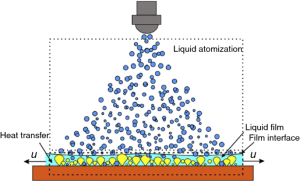
In a world that demands peak mental performance, the allure of nootropic supplements has surged. These compounds, often referred to as “smart drugs” or cognitive enhancers, claim to boost cognitive function, memory, creativity, and focus. But what does science say about these promises, and what lies behind the buzz surrounding these best nootropic supplements?
At the core of Best Nootropics supplements are substances that interact with the brain’s neurotransmitter systems, altering neuronal function. One of the most well-known is caffeine, found in coffee and tea, which enhances alertness and concentration by blocking the action of adenosine, a neurotransmitter responsible for promoting sleep. Other common ingredients include racetams, such as piracetam, which are believed to modulate neurotransmitter release and improve cognitive function.
The efficacy and safety of nootropics vary widely depending on the compound and individual biology. While some studies suggest benefits in memory enhancement and attention improvement, results are often inconsistent, and long-term effects remain poorly understood. Moreover, the potential for adverse effects and interactions with other medications underscores the need for caution.
Recent advancements in neuroscience offer insights into the mechanisms underlying nootropic action. Many of these compounds target key neurotransmitter systems, such as acetylcholine, dopamine, and serotonin, which play crucial roles in cognitive processes like learning, memory, and mood regulation. By modulating these systems, nootropics may enhance synaptic plasticity, the brain’s ability to form and strengthen neural connections, thus facilitating learning and memory consolidation.
Emerging research highlights the role of neuroprotection in cognitive enhancement. Oxidative stress and inflammation, implicated in age-related cognitive decline, can damage neurons and impair cognitive function. Certain nootropics, like antioxidants and anti-inflammatory agents, may mitigate these processes, protecting against neuronal damage and supporting brain health.
Beyond pharmacological interventions, lifestyle factors also play a pivotal role in cognitive enhancement. Adequate sleep, regular exercise, balanced nutrition, and stress management are fundamental pillars of cognitive health. Nootropic supplements should complement, rather than substitute for, these lifestyle practices.
While the science behind nootropic supplements holds promise for enhancing cognitive function, it remains a complex and evolving field. Understanding the mechanisms of action, individual variability, and potential risks is essential for informed decision-making. Ultimately, unlocking the full potential of the brain requires a holistic approach that integrates pharmacological interventions with lifestyle modifications, empowering individuals to optimize cognitive performance and well-being.






